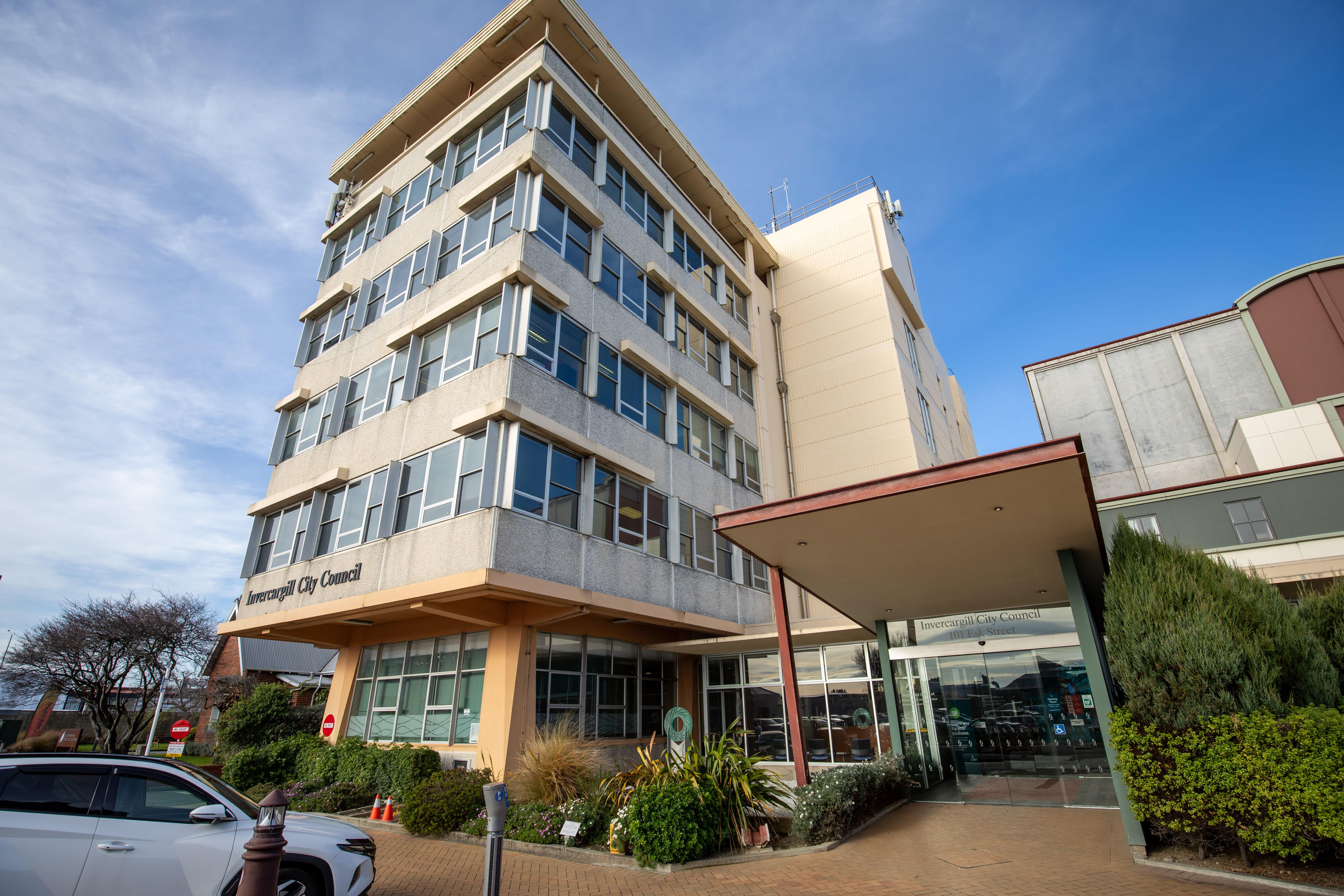Invercargill council votes to retain mana whenua reps
Local Democracy Reporter
04 November 2025, 8:16 AM
 Invercargill City Council has had mana whenua representatives since 2021. Photo: RNZ/Nathan McKinnon
Invercargill City Council has had mana whenua representatives since 2021. Photo: RNZ/Nathan McKinnonMana whenua representative roles have been given the green light at Invercargill City Council following a vote at the inaugural meeting.
Introduced in 2021, the arrangement allows one representative from each of the city’s two rūnaka to be internally selected and put forward to council.
Mayor Tom Campbell said the proposal this time around was for the representatives to sit on every council committee which was a “fairly significant increase in their involvement”, but one which mirrored councillors'.
Council manager governance and legal Michael Morris said no names had yet been given from rūnaka partners as the process was still being worked through.
The positions have been held by Rev Evelyn Cook (Waihōpai Rūnaka) who gave an impassioned valedictory speech on its challenges, and Pania Coote (Te Rūnanga o Awarua) who unsuccessfully ran for the council this election. Both still hold the positions until appointees are decided for the upcoming term.
Cook was present at Tuesday’s meeting and responded to an issue raised by councillor Ria Bond about engagement with Ngā Matawaka — Māori living in Murihiku/Southland who were not Ngāi Tahu.
Bond said there was a “tricky situation” where Matawaka had to seek leadership underneath mana whenua, which was adding to internal relationship conflict.
“Coming around and being around the Matawaka, different iwi down here, it’s quite prevalent that they are wanting quite a bit of engagement, but to feel like they are there on their own mana, not under anyone else's.”
It was important their voices were heard and engaged with at council, Bond said.
Cook said engagement was not as successful as hoped, but acknowledged it was a two-way street.
An opportunity had been missed appointing deputy mayor Grant Dermody to an iwi liaison group instead of Bond, she added.
The decision to continue with the representative roles was widely supported on Tuesday, bar an objection from councillor Barry Stewart who has previously taken exception with the use of Te Reo Māori.
Mana whenua representatives are able to vote at committee level, but legislation prevents them doing so at full council because they are unelected.
The positions are voted on at the start of each term because they are not statutory appointments, a council report explained.
Their honorarium is set to be discussed at a meeting on 11 November where councillor pay will also be decided.
LDR is local body journalism co-funded by RNZ and NZ On Air